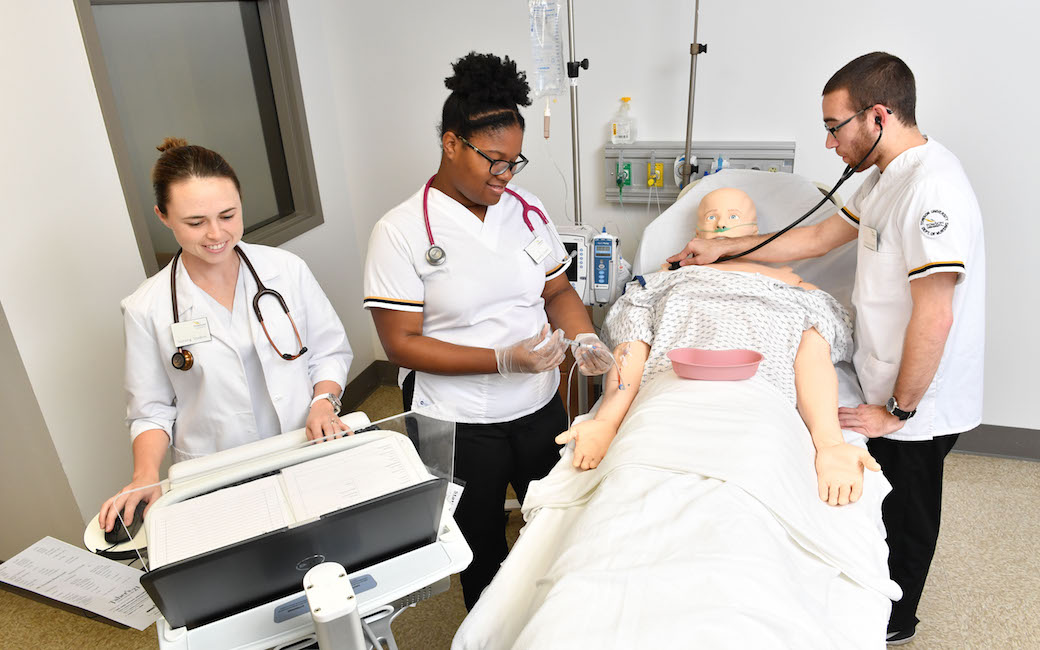TU nursing takes simulation lab to the next level
Towson University produces 21 percent of Maryland's health care professionals.
By Megan Bradshaw on October 27, 2017

Towson University College of Health Professions’ Department of Nursing received a grant of over $100,000 to update its simulation labs that prepare students for their work in the nursing field after graduation.
TU received the grant from the Maryland Clinical Simulation Resource Consortium out of Montgomery County Community College and the Maryland Higher Education Committee (MHEC).
Part of the nursing department in TU’s Linthicum Hall has been outfitted to recreate a patient care setting, with hospital beds, medical equipment and patient mannequins. The grant allows TU to purchase new technology like IV pumps, patient-controlled analgesic pumps and a birthing bed. Adding to the realism already present in the lab is the addition of a birthing mother mannequin and a mannequin torso worn by a human to simulate a real person giving birth.
TU nursing students complete rotations in area hospitals as part of the program, but because of liability issues, there are limits to what student nurses can do in clinical settings. For example, students may watch but not participate in a birth since it’s a high-risk procedure. The simulation lab gives students the chance to gain those experiences firsthand.
Another important acquisition made possible by the grant is a Bluetooth-enabled advanced life support mannequin.
That mannequin is hooked up to a computer that gives feedback about nursing students’ performance during simulations, like the one Hagerstown and main campus senior nursing students participated in during spring 2017 in which the mannequin “died,” and the students worked together to bring him back to life.
“This grant will help us enhance the student clinical experience by giving students the opportunity to use high-level technology and high-fidelity simulation equipment, which increases immediacy and realism for them,” said Regina Twigg, clinical associate professor.
“Good simulation labs help with student learning and program satisfaction. They are important when students are looking at what colleges to attend. They ask about the labs when they visit campus. This grant allows us to take our lab to the next level.”